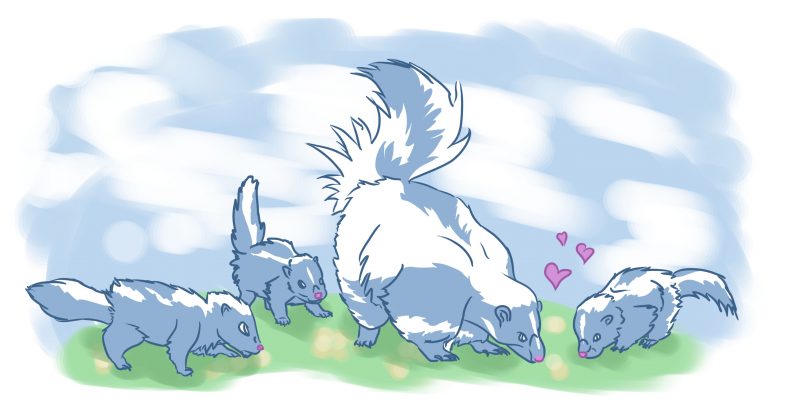Lawrence Kim, an associate professor of classical studies, walked into his first class of the year excited and blissfully unaware. Kim had been tasked with teaching an intro-level classics course, Classical Mythology. The class attracts all sorts of students, from first-years intent on a major to seniors looking for credits.
When Kim arrived, he took out his materials, set up his laptop and perhaps even wrote his name on the board. Kim glanced out his window, watching the busy afternoon unfold: students speed walking to class, professors searching for their new rooms and squirrels scurrying up the trees. Satisfied with his room and excited to teach his next group of classics scholars, Kim sat down and surveyed MMS 177, looking forward to a fresh start to the semester.
However, when Kim’s wife, Sira Schulz, a part-time faculty member in the classical studies department, entered the building on her way to MMS 177, she was immediately hit with a wave of a noxious stench. As students passed through the building, they noticed the odor too, rushing to get outside to the fresh air.
Schulz walked through the scrambling students and into Kim’s room. Schulz then asked a content Kim about the awful skunk smell, getting a confused look in return.
“I didn’t notice anything and didn’t know what she was talking about. Skunk smell? Anyway, this happens to us all the time, because I have a really bad sense of smell, while she has Daredevil-like heightened senses of all kinds, but especially smell,” Kim wrote in an email interview.
Kim is one of the lucky ones. Students who have class in Marrs McLean have been complaining of an odor since they returned from the winter break. Recently, it was discovered that there is a family of skunks living under Marrs McLean, causing the building to smell.
Some students noticed the stench when they returned from the break, but believe that it has since subsided. Dillon Akins, sophomore and intended history major, has class in Marrs McLean this semester and noticed the smell immediately.
“I smelled it when I walked through here going to and from class. It was awful,” Akins said.
Katherine Jones, sophomore geoscience major, also detected the stench when she came to the building for class. She believes either the smell faded or she has stopped noticing it.
“Time heals everything,” Jones said.
Although the smell is an inconvenience, students believe that the skunks should not be harmed in the process of ridding Marrs McLean of the stench.
“Whatever they do just don’t kill the skunks,” Jones said.
Because skunks use their spray as a last resort defense mechanism, students believe the Trinity community could learn to live in harmony with the skunks. Students even suggested naming the skunks to help them feel more at home.
“We could name the skunks, they could be mascots. Do a name submission contest — Skunky McSkunsky,” Akins said.
Since the initial smelliness, students and professors have wondered if facilities services intends to take action against the skunks.
The Trinitonian reached out to facilities services, but they did not respond by press time.







